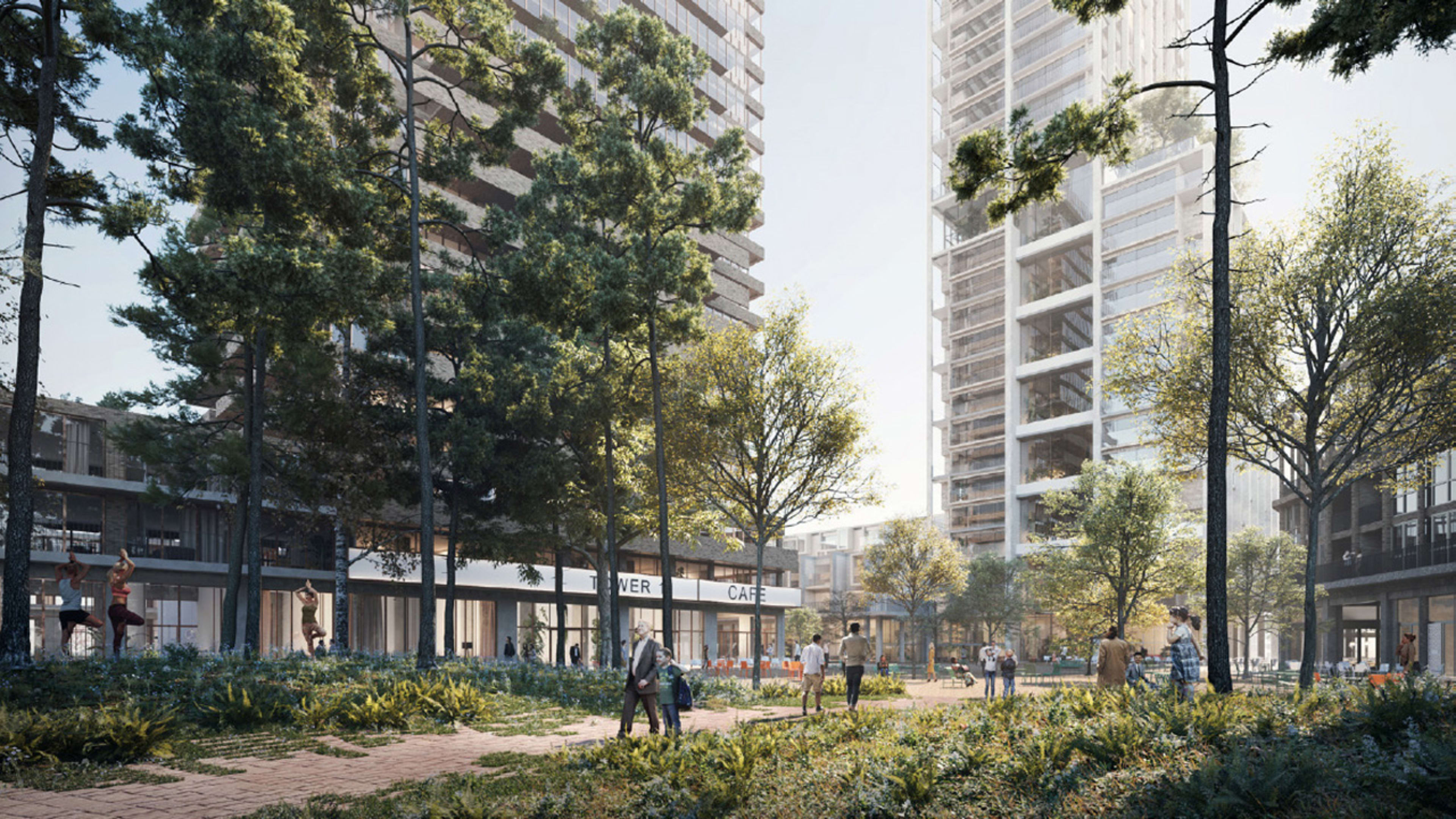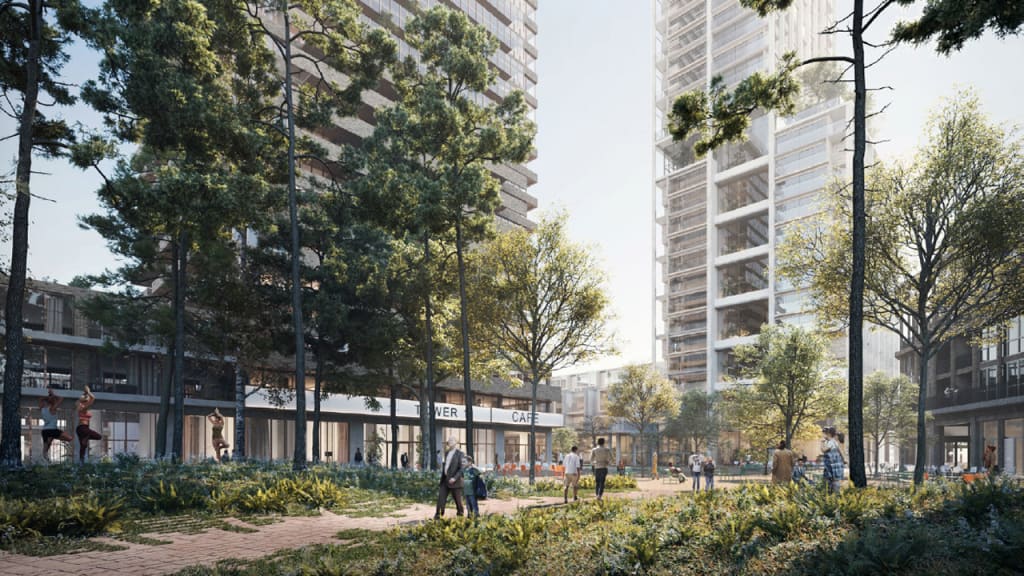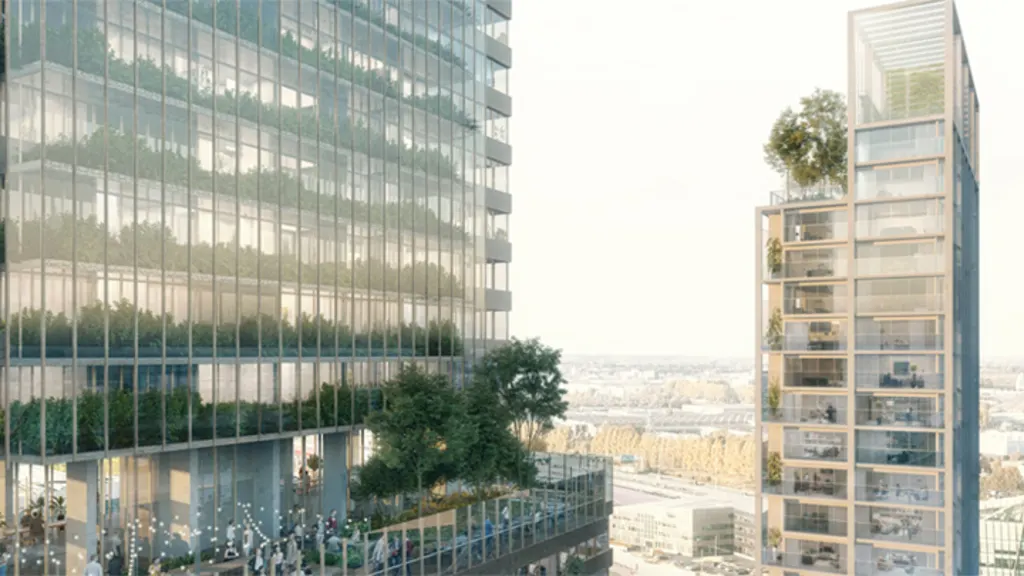In a new apartment complex that will soon rise in the Dutch city of Utrecht, instead of deliveries from an online grocer, you can get boxes of vegetables grown in an intensive greenhouse on the roof or from a smaller unit built into the facade on your own floor. In a courtyard downstairs, you can forage for raspberries in an urban forest. In the parking garage–which is designed to house many more bikes than cars–there’s space for aquaculture.
The new development, called the Mark, with more than 1,000 units in three towers, rethinks the sustainability of typical high-rise buildings. One part of that is the food that residents eat. “We put a lot of energy into diminishing the carbon footprint due to food production for the inhabitants there,” says Darius Reznek, a partner at the design firm Karres Brands, which worked on the project along with the firms Architekten Cie, KCAP, Geurst & Schulze, and a group of developers. A team of urban farmers will manage the on-site greenhouses, which will also supply produce to a rooftop restaurant.
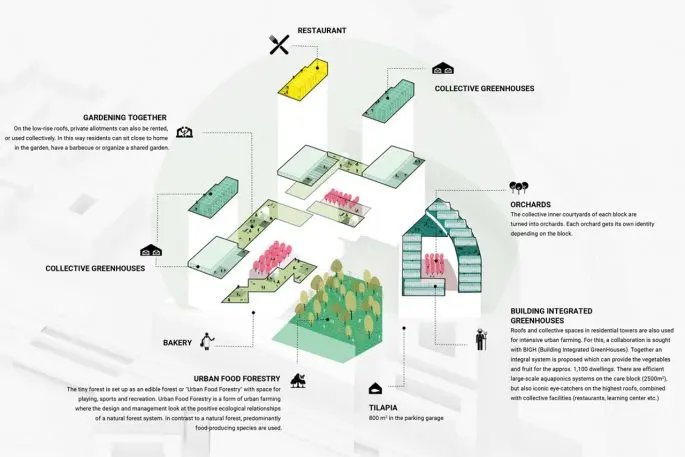
Food is also a way to bring residents together–the apartments have their own balconies, but it’s possible to visit the greenhouses or manage a plot of your own in a community garden. The buildings also nudge people to interact in other ways. “The high-rises are separated in sort of smaller neighborhoods that revolve around collective floors,” says Reznek. Along with green spaces, the buildings have shared spaces with larger kitchens, collective “living rooms” if someone needs more space for a party, shared workspaces, and other community gathering places.
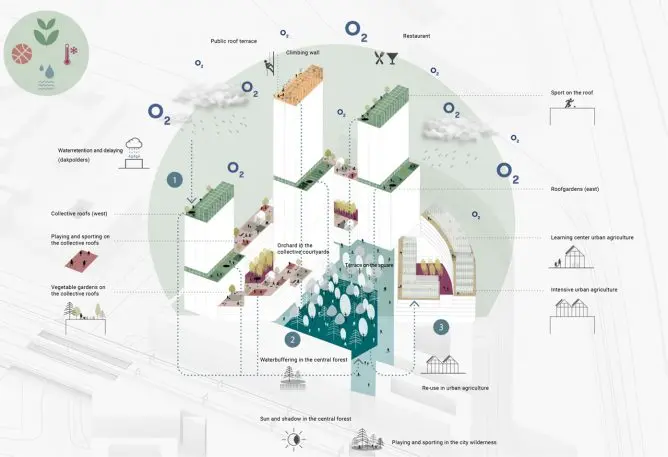
The apartments, which will be completed in 2023, are meant for everyone: While some will be sold or rented at market rate, the majority will be low-income social housing, medium-rent housing, or “care homes” for the elderly. Older residents will live near a shared courtyard and near services like a physiotherapist’s office and a doctor, and can transition to assisted living while staying in their own apartments.
It’s a model for high-rise apartments that the architects hope becomes more common, both in terms of sustainability and in terms of social interaction that goes beyond seeing neighbors in an elevator. “We believe that in order for skyscrapers or dense urban living to become kind of relevant again, it needs to become less monofunctional,” Reznek says. “It needs to address this solitude of living isolated at the 100th floor and not knowing your neighbors.”
Recognize your brand's excellence by applying to this year's Brands That Matters Awards before the early-rate deadline, May 3.
